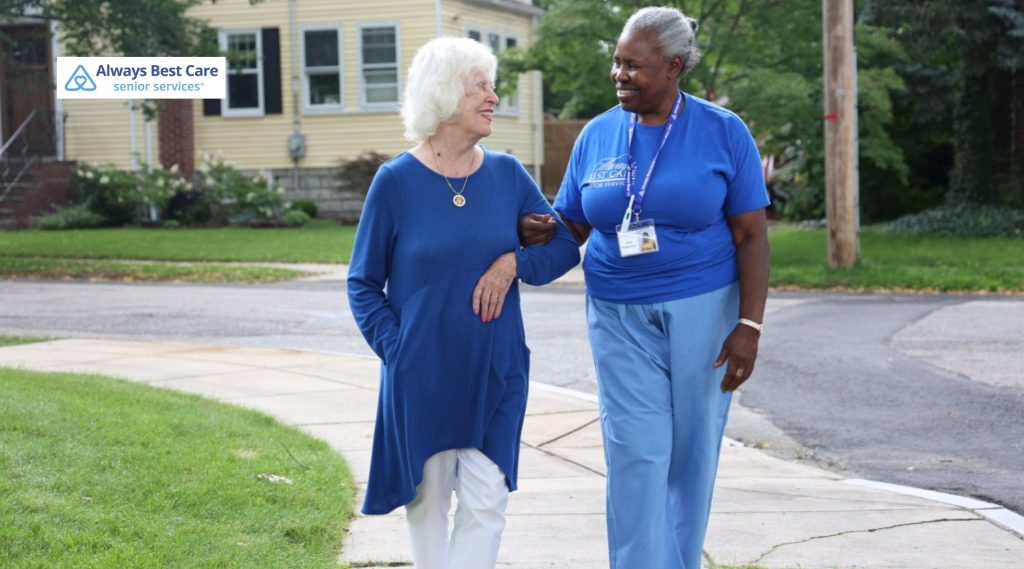How to Know If Hospice Care is the Right Choice in Chicago, IL

Facing the decline of someone you love is never easy. Sometimes, it feels like your world has been turned upside down, and making sense of what comes next can be daunting. Many of us in Chicago, IL, hesitate to even utter the words “hospice care”—but, contrary to what some may think, hospice isn’t about giving up hope. Instead, it’s about reclaiming comfort, dignity, and those precious moments that matter most.
What you will learn:
- The key physical and emotional signs that might indicate it’s time to consider hospice care for your loved one.
- Hospice care focuses on comfort, dignity, and quality of life, providing both medical and emotional support.
- Tips for starting the hospice conversation with your loved one and how to approach it with care and compassion.
- The valuable services hospice care offers, including expert pain management, respite care for caregivers, and guidance through important end-of-life decisions.

Table of Contents
What Does Hospice Care Mean?
When a serious illness enters the picture, the focus often shifts from “beating” the disease to making each day count. That’s where hospice care steps in, rather than pursuing aggressive treatments, hospice zeroes in on managing symptoms, easing pain, and supporting both the patient and their loved ones emotionally and spiritually.
- Provided wherever home feels right—be it your own house, a hospice center, or an assisted living community.
- Covered by Medicare, Medicaid, and most private insurances.
- Brings a team approach: doctors, nurses, social workers, and spiritual counselors, all pulling together for your family.
Physical Signs It Might Be Time to Consider Hospice Care in Chicago, IL
Sometimes, the body sends signals loud and clear, and it’s wise to pay attention. Here’s what to look for if you’re wondering about your loved one:
- Frequent trips to the ER or hospital—especially when recoveries are slow or temporary.
- Noticeable weight loss that doesn’t bounce back.
- Breathlessness even while resting, or a growing reliance on oxygen.
- Pain that seems tougher to control with usual medications.
- Repeated infections or wounds that just won’t heal.
- Declining mobility—needing help moving, getting up, or even sitting up.
- Difficulty with everyday basics like bathing, dressing, or feeding themselves.
If several of these ring true, it might be time for a conversation about hospice care.

Emotional and Behavioral Clues to Consider Hospice Care
Not every sign is physical. Sometimes, it’s the subtle changes that really tug at our hearts:
- Pulling away from family or friends, preferring solitude or more sleep.
- Losing interest in favorite pastimes—when even the most-loved hobbies no longer spark joy.
- Increased anxiety or sadness related to illness, or even fear about the future.
- Confusion, forgetfulness, or seeming “not quite themselves.”
These shifts can be just as telling as physical symptoms and may indicate a need for more specialized support.
Medical Milestones: What Doctors Watch For
Medical professionals might suggest hospice care when:
- There’s a life-limiting diagnosis, with a prognosis of about six months or less if the illness runs its natural course.
- Treatments that once helped now do little—or cause more harm than good.
- The focus turns from “curing” to “comforting.”

How Hospice Care Helps: More Than Just Comfort
Choosing hospice doesn’t mean less care—it often means more, just in a different way. Here’s what families in Chicago can expect with Always Best Care:
- Expert pain and symptom management—so your loved one stays comfortable.
- Emotional and spiritual support—for patients and everyone who loves them.
- 24/7 availability—because questions and worries don’t keep office hours.
- Respite care—giving family caregivers a much-needed break.
- Guidance on important decisions—from medical choices to end-of-life wishes.
Starting the Hospice Conversation: Tips for Families in Chicago, IL
Bringing up hospice care can feel like walking a tightrope. Here’s how to approach it with compassion:
- Pick a quiet, private moment when you can talk without distractions.
- Ask your loved one about their wishes and worries. Listen—really listen.
- Use gentle, honest language focused on comfort and support.
- Involve their doctor for clarity and reassurance.

When’s the Right Time to Act?
Waiting too long can mean missing out on valuable days with better comfort and support. If you’re spotting more than a couple of these signs—declining health, withdrawal, trouble managing symptoms—it’s probably time to talk things over. Remember, hospice care doesn’t mean life will be shorter. In fact, research shows it can sometimes help folks live longer, and with far better quality.
Why Choose Always Best Care of Chicago, IL?
At Always Best Care of Chicago, we get how tough these choices can be. We’re right here to help you:
- Understand all your care options, including local hospice services.
- Connect you with trusted hospice providers who treat your family like their own.
- Support you, answer questions, and walk with you every step of the way[1][2][3].
Frequently Asked Questions
Q: What is hospice care, really?
A: Hospice care focuses on comfort and quality of life, not curing illness. It brings together medical, emotional, and spiritual support for people with serious illnesses and their families.
Q: Will choosing hospice mean giving up?
A: Not at all. Hospice is about making the most of every day, with less pain and more dignity.
Q: Is hospice only for people with cancer?
AL: No. Hospice supports anyone with a life-limiting illness, from heart failure to Alzheimer’s, and more.
Q: How do we pay for hospice?
AL: Most hospice services are covered by Medicare, Medicaid, and many private insurance plans.
Q: Can my loved one stay at home?
A: Absolutely. Hospice care can be provided wherever “home” is—your house, an assisted living facility, or elsewhere.

Considering Hospice Care? Let Always Best Care of Chicago Help You Through This Journey!
Saying the word “hospice” isn’t about surrender—it’s about choosing comfort, respect, and peace for the time that remains. If you’re seeing these signs in your loved one, don’t wait. Reach out to Always Best Care of Chicago, IL. We’re here to help you find the right path, every step of the way.
Contact Always Best Care of Northwest Chicago at (312) 465-6833 to learn more and schedule your free consultation.





